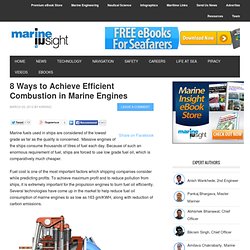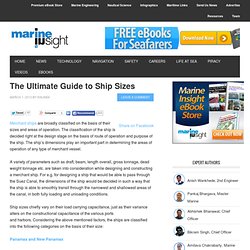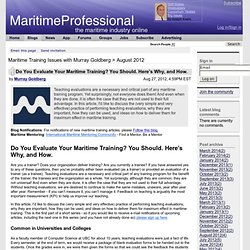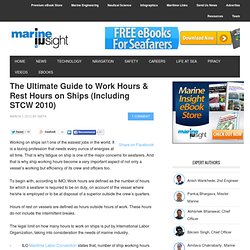

8 Ways to Achieve Efficient Combustion in Marine Engines. Marine fuels used in ships are considered of the lowest grade as far as the quality is concerned.

Massive engines of the ships consume thousands of litres of fuel each day. Because of such an enormous requirement of fuel, ships are forced to use low grade fuel oil, which is comparatively much cheaper. Fuel cost is one of the most important factors which shipping companies consider while predicting profits. To achieve maximum profit and to reduce pollution from ships, it is extremely important for the propulsion engines to burn fuel oil efficiently. Several technologies have come up in the market to help reduce fuel oil consumption of marine engines to as low as 163 gm/KWH, along with reduction of carbon emissions. In this article we have discussed about eight important aspects of marine fuel combustion which are necessary in order to achieve efficient combustion of the fuel oil and to reduce fuel consumption and exhaust space fouling.
Image Credits: wartsila, machineryspaces, lorange. The Ultimate Guide to Ship Sizes. Merchant ships are broadly classified on the basis of their sizes and areas of operation.

The classification of the ship is decided right at the design stage on the basis of route of operation and purpose of the ship. The ship’s dimensions play an important part in determining the areas of operation of any type of merchant vessel. A variety of parameters such as draft, beam, length overall, gross tonnage, dead weight tonnage etc. are taken into consideration while designing and constructing a merchant ship. For e.g. for designing a ship that would be able to pass through the Suez Canal, the dimensions of the ship would be decided in such a way that the ship is able to smoothly transit through the narrowest and shallowest areas of the canal, in both fully loading and unloading conditions.
Ship sizes chiefly vary on their load carrying capacitance, just as their variance alters on the constructional capacitance of the various ports and harbors. Panamax and New Panamax Aframax Chinamax Suezmax. Do You Evaluate Your Maritime Training? You Should. Here's Why, and How. Teaching evaluations are a necessary and critical part of any maritime training program.

Yet surprisingly, not everyone does them! And even when they are done, it is often the case that they are not used to their full advantage. In this article, I'd like to discuss the (very simple and very effective) practice of performing teaching evaluations, why they are important, how they can be used, and ideas on how to deliver them for maximum effect in maritime training. Blog Notifications: For notifications of new maritime training articles, please Follow this blog.
Maritime Mentoring: International Maritime Mentoring Community - Find a Mentor, Be a Mentor. Home. Nautical (Sailing) & Seafaring Terms (Words & Phrases), Nomenclature and Illustrations for Sailboating and Sailboarding (Windsurfing) 20 Things that Should be Included in the Planned Maintenance System. The Planned Maintenance System or PMS is now available on every ship.
The software is very helpful in the sense that as you scroll down in the computer, it reminds you of what is due and what is overdue. A few years back a junior engineer taught me how to reschedule a job, and it was then that I realized the amazing power of PMS. PMS is extremely beneficial to keep a track of extremely crucial tasks. For e.g. these days a ship engineer needs to reschedule the Main Engine Cylinder de-carb job mainly because of the fast turnaround of the ships and, in some cases, ports not granting immobilisation of vessels. PMS comes very handy in such situations. Below are mentioned 20 of the most important tasks that one should keep a close eye on board ships using PMS are: 1) Flow Meter Filters: Cleaning of flow meter filters for generators and main engine should be included in PMS. 3) Viscotherm : Viscotherm is one single item that ensures correct combustion in marine engines. Image Credit: goodwoodship.
The Ultimate Guide to Work Hours & Rest Hours on Ships (Including STCW 2010) Working on ships isn’t one of the easiest jobs in the world.

It is a taxing profession that needs every ounce of energies at all time. That is why fatigue on ship is one of the major concerns for seafarers. And that is why ship working hours become a very important aspect of not only a vessel’s working but efficiency of its crew and officers too. To begin with, according to IMO, Work hours are defined as the number of hours for which a seafarer is required to be on duty, on account of the vessel where he/she is employed or to be at disposal of a superior outside the crew’s quarters. Top 7 Important Websites For Marine Engineers. Gone are the days when studying for marine engineering competency exams were restricted to printed books. Today, everything has gone digitized, including examination preparation.
And why it shouldn’t be? Studying online is fun, interactive, and easy to absorb. Moreover, you can solve your queries in a short duration of time, get different views from people around the world, and share your own knowledge to those who seek. It’s an extremely interesting process. So, if you think preparing for your next competency exams is a boring task, then you are wrong. These websites must be book-marked by all marine engineers! 1. Putting our own website right at the top of the list might seem like a marketing tactic, but then we do provide a wide range of articles and latest updates on marine engineering and maritime technology in the simplest language possible.
Marine Insight offers almost everything, from details on construction and operation of ship’s machinery to onboard safety and latest news.